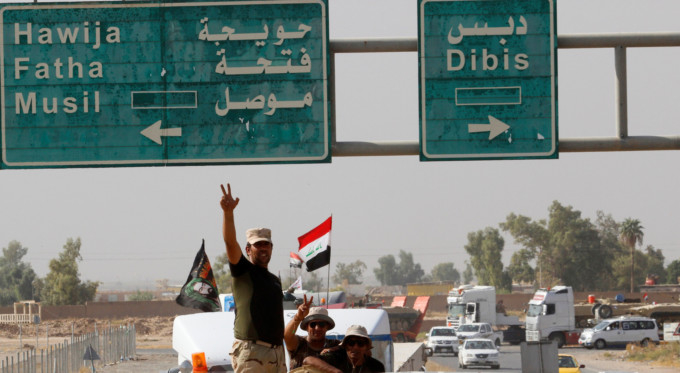
Baghdad: The Iraqi foreign ministry summoned the Turkish ambassador on Thursday to protest the continued presence of Turkish troops in northern Iraq without Baghdad’s permission, a ministry spokesman said.
Turkish troops are deployed in the Bashiqa area near the Daesh-held city of Mosul, and Turkey’s prime minister has said that they will stay despite Baghdad’s demands that they be withdrawn.
The Turkish ambassador was given “a strongly worded formal note of protest” regarding “the continued presence of Turkish forces near Bashiqa and recent abusive statements from their leadership,” spokesman Ahmad Jamal said.
Earlier this week, Turkish President Recep Tayyip Erdogan told Iraqi Prime Minister Haider Al Abadi to “know your place,” and said that he is “not on my level.”
And Prime Minister Binali Yildirim said last week that the country’s forces would stay “no matter what the Iraqi government in Baghdad says.”
Al Abadi has repeatedly demanded that the Turkish troops be withdrawn and said that they will not take part in the impending operation to recapture Mosul from the Daesh terror group.
“The day of victory is near,” Al Abadi’s office said in a statement. “We won’t be discouraged by those who want to deter us from our fundamental goal and thrust us into a media war.”
The US State Department issued a statement earlier this week that implicitly backed Iraq’s position, saying that: “We believe all international forces in Iraq should be there with the approval of and in coordination with the government of Iraq.”
Iraqi forces are preparing for the operation to retake Mosul from Daesh, which is expected to be the toughest and most complex battle of the country’s more than two-year war against the terrorists.
More than 7,000 military personnel from a US-led coalition are deployed in Iraq to support Baghdad’s forces, but the coalition has repeatedly stated that the Turkish deployment is not part of its operations.
In Ankara, Turkey’s presidential spokesman warned on Thursday that any mistake in the plan to drive Daesh from Mosul could result in hundreds of thousands of refugees and said that Turkey is concerned about reports of a Kurdish militant role in the plan.
Ebrahim Kalin also said that Turkey had no secret agenda in Iraq and was in favour of solving problems with Baghdad through dialogue.
On Wednesday, a Pentagon spokesman said that feud between the two key US allies will not affect plans for recapturing Mosul from Daesh,
Col. John Dorrian, a US military spokesman in Baghdad, played down the effect of the clash between the leaders of Iraq and Turkey, as the US military prepares to assist an Iraqi assault on the city of Mosul, a major objective in defeating the Daesh.
“Planning for the liberation of Mosul continues,” Dorrian told reporters in a briefing at the Pentagon. “We’re a military organisation, and we stay focused on military tasks. So, all the strikes that we’ve been doing, all the training we’ve been doing, all the advising and assisting with things like logistics, all those elements are being put in place to support the Iraqi advance when they’re ready to do it.”
Al Abadi is expected to launch an operation this month aimed at recapturing the northern city. The Iraqi leader faces an array of challenges in that fight, including thick militant defences and the problem of managing a diverse force including Iraqi troops, militiamen and foreign advisers.
About 1,500 Turkish troops are believed to be stationed at several locations in northern Iraq, primarily training Kurdish Peshmerga troops, according to US officials.
The dispute is an additional headache for the Obama administration, which is hoping the Mosul operation will deal a decisive blow to Daesh in Iraq and set the stage for a final battle in their de facto capital, the Syrian city of Raqqa. Washington has already been seeking to reduce its own tensions with Turkey over US support to Kurdish factions in Syria and over the US response to this summer’s failed coup attempt in Turkey.
Dorrian said there were diplomatic efforts underway to smooth things over between Ankara and Baghdad.












